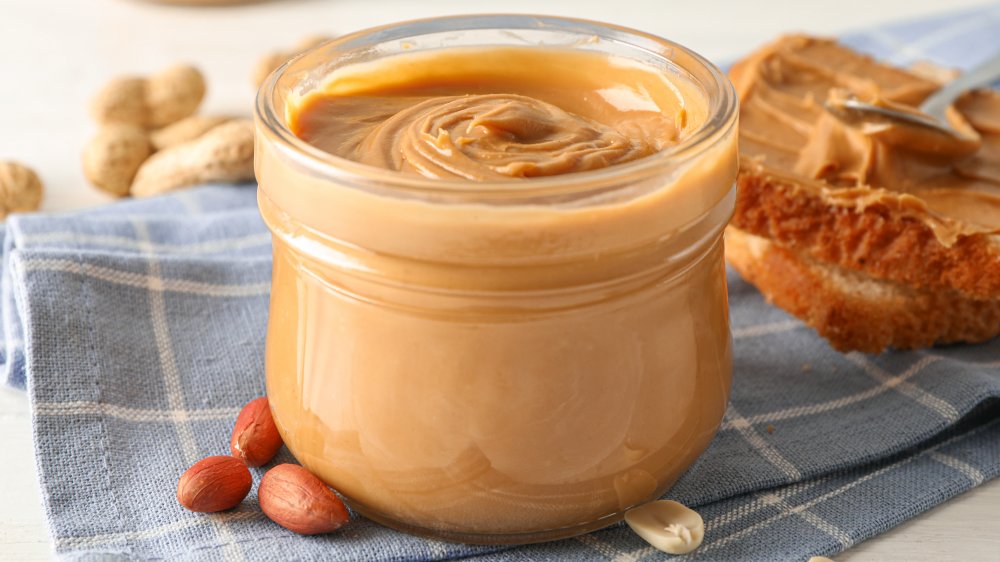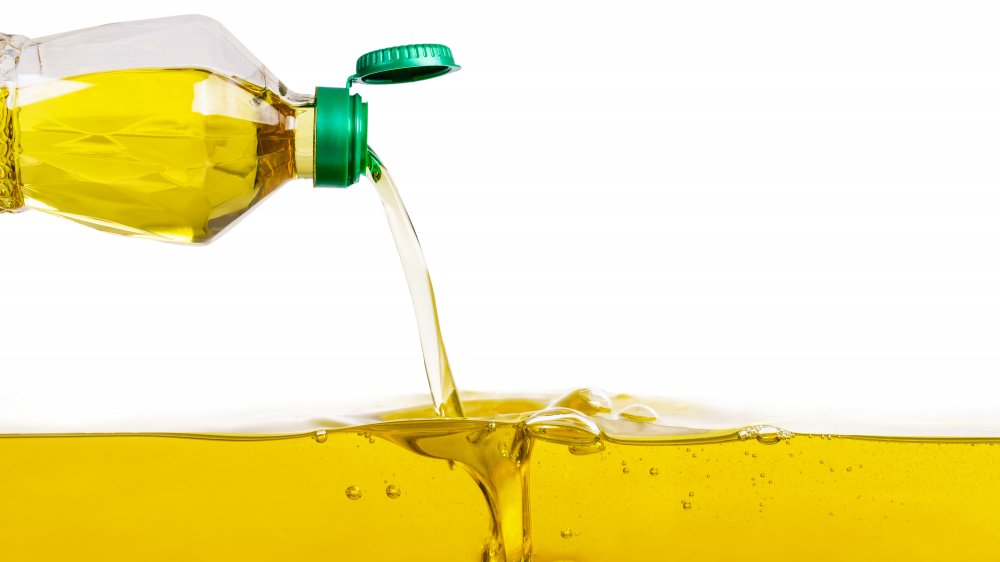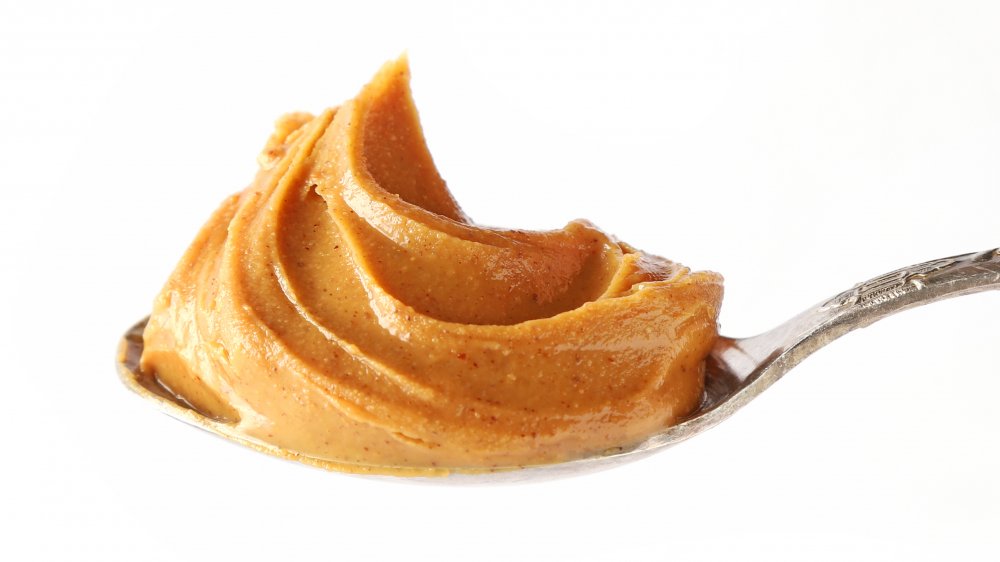Why You Might Want To Throw Away Your Peanut Butter If It Has This Ingredient
When you purchase a jar of peanut butter, you probably assume you know what's inside. Just ground peanuts and maybe a little bit of salt, right? While some all-natural spreads (especially the kind that you grind yourself in-store) can boast this short ingredients list, you'll find that many jars of peanut butter on your supermarket shelves have a lot more in them. According to Eat This, Not That!, many of these extra ingredients are stabilizers, sugars, and fillers, which can quickly take your snack from filling and protein-packed, to fattening and unhealthy without you even noticing the difference. One particularly alarming additive, which can be found lurking in the ingredients lists of countless brand's peanut butters, is hydrogenated vegetable oil.
Healthline describes hydrogenated vegetable oil as an incredibly common ingredient added to processed foods to help maintain the product's consistency and texture. They state that this oil is preferred by many manufacturers due to its low cost and long shelf life. Hydrogenated oils are produced by extracting oil from plants such as olives, soybeans, and sunflowers.
Hydrogenated vegetable oils come in two forms
The problem with hydrogenated vegetable oil comes down to the process used to make it. Hydrogenated vegetable oils come in two forms: partially hydrogenated and fully hydrogenated (via The Spruce Eats). Healthline reports that the process to make partially hydrogenated oils creates artificial trans fats, which can be harmful to your health. Consuming trans fats has been known to lower your HDL cholesterol levels (the good kind) and raise your LDL cholesterol levels (the bad kind), which can significantly increase your risk of developing heart disease, type 2 diabetes, and having a stroke.
The Spruce Eats states that while fully hydrogenated oils do not have trans fats, they are produced the same way as partially hydrogenated oils and contain saturated fat in the form of stearic acid. Saturated fats still raise your risk of heart disease, meaning that while fully hydrogenated oils are somewhat healthier than partially hydrogenated ones, they shouldn't be considered healthy overall.
Your trans fat-free peanut butter might still contain trans fats
Healthline states that several countries have now restricted or outright banned the use of hydrogenated vegetable oils. By 2021, the European Union will only allow trans fats to make up just 2 percent of any food products. In 2015, the Food and Drug Administration declared partially hydrogenated oils were no longer categorized as "Generally Recognized as Safe," and any new products entering the market after June 18, 2018 were not allowed to contain any added partially hydrogenated oils. For products already on the market, this date was extended to January 1, 2020. However, this rule only applies to partially hydrogenated oils, and not fully hydrogenated oils, which are what you will find in your peanut butter today.
The Spruce Eats also asserts that many companies are also getting around this partially hydrogenated oil ban by including small amounts per serving. The reason they give for the inclusion of the unhealthy ingredient in peanut butter is that fully hydrogenated oils are solid at room temperature, so they need the partially hydrogenated stuff to keep the product spreadable. The FDA allows foods containing small measurements of partially hydrogenated oils to be declared "trans-fat-free," which becomes a huge issue when paired with small serving sizes. If you eat more than just one serving of the peanut butter, you can easily end up consuming an unhealthy amount of trans fats without even knowing they were there in the first place.


